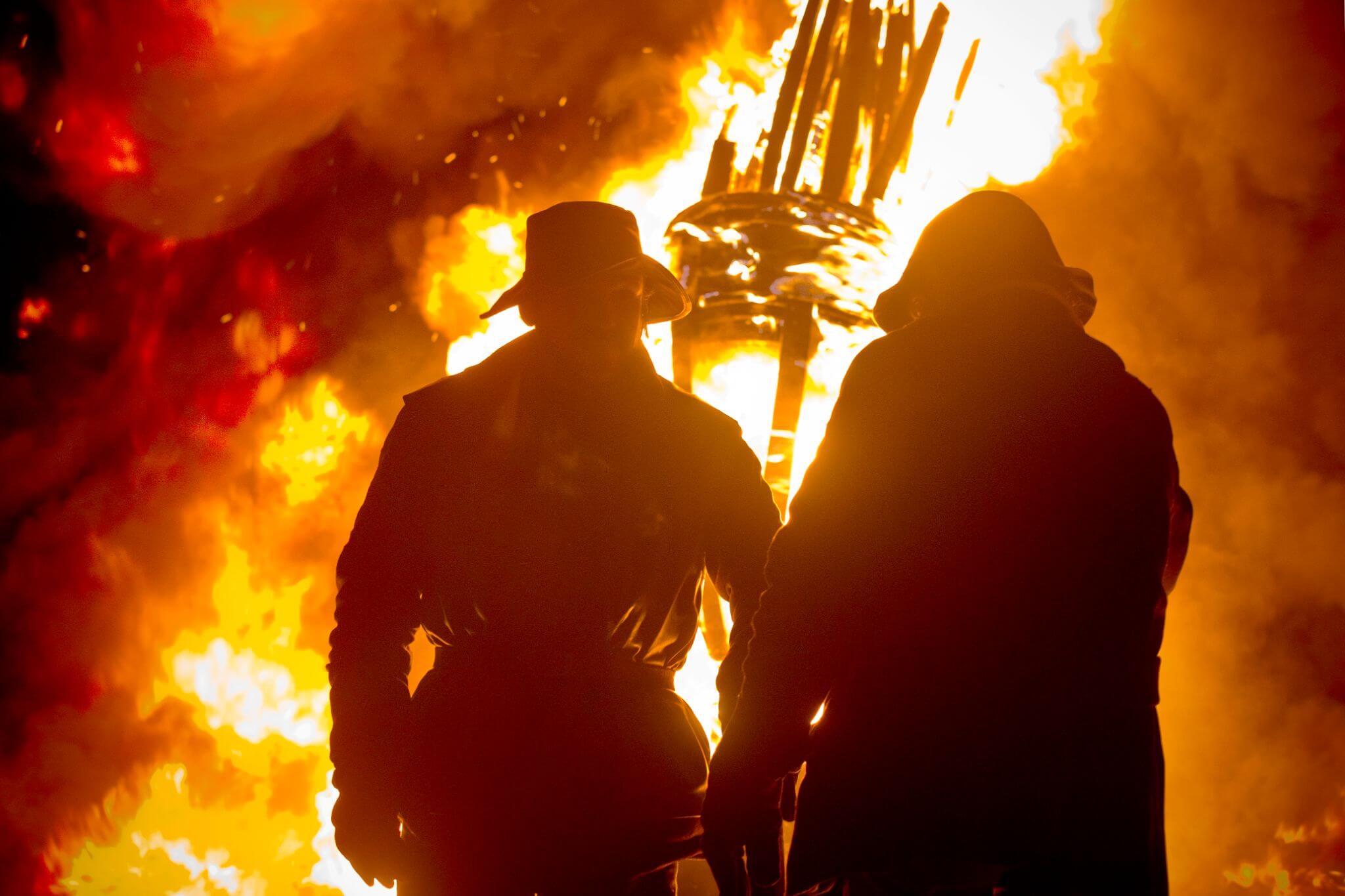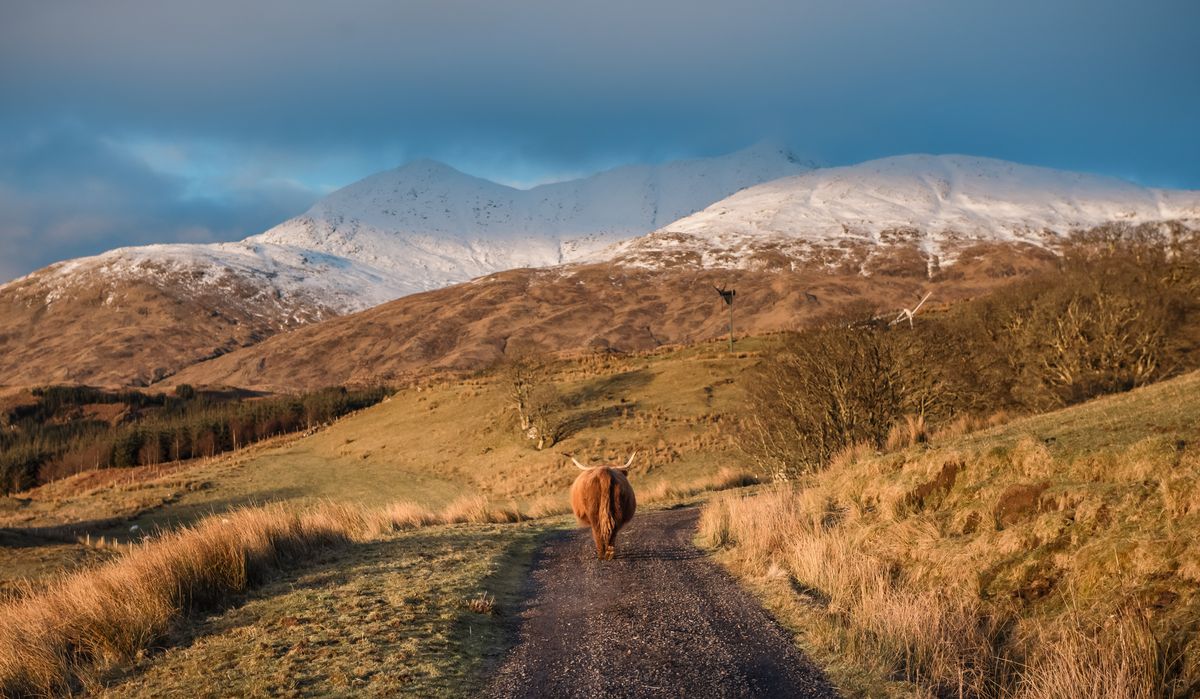Un vichingo di Up Helly Aa nella fiaccolata di Hogmanay, Edimburgo
© VisitScotland / Kenny Lam
Sei il benvenuto ovunque tu sia durante le celebrazioni scozzesi dell'Hogmanay. Alla fine della serata avrai più nuovi amici di quanti tu possa immaginare e a mezzanotte potrai cantare insieme Auld Lang Syne. Per un'indimenticabile vacanza di Capodanno, non può mancare la Scozia.
Hogmanay a Edimburgo
Quando si tratta di Hogmanay, Edimburgo sa certamente come mettere in scena uno spettacolo, sia che si tratti della famosa festa di strada di Edimburgo e degli spettacolari fuochi d'artificio, sia che si tratti di un ceilidh e di un concerto nei Giardini di Princes Street.
Stonehaven
Stonehaven Fireballs
A Stonehaven fanno davvero fuoco e fiamme per festeggiare l'anno nuovo! Questa processione delle palle di fuoco che si tiene nell'Aberdeenshire è davvero uno spettacolo imperdibile. Si tratta di un evento gratuito che viene organizzato in occasione dell' Hogmanay da oltre un secolo e che attira sempre una vasta folla. La tradizione vuole che vengano bruciati i cattivi spiriti dell'anno passato con un rituale purificatore, in modo che l'anno nuovo possa iniziare senza i retaggi negativi di quello precedente. Lasciatevi sbalordire da questo spettacolo che vedrà un suonatore di cornamusa aprire la sfilata che avanza lungo le strade appena prima della mezzanotte e decine di "swingers" che faranno roteare palle di fuoco sopra la loro testa in un atto di grande coraggio.
Biggar Bonfire
Nelle ultime settimane dell'anno, potrete vedere un'enorme catasta di legno innalzarsi gradualmente nel centro città di Biggar, in preparazione dei festeggiamenti per il nuovo anno tipici di questa città del South Lanarkshire. Il falò di Bonfire viene acceso alle 21:30 la notte di San Silvestro per accogliere il nuovo anno in città con un caloroso bagliore.

Burning of the Clavie, Burghead
© Scottish Provincial Press / Daniel Forsyth
Un bicchierino di whisky a Dufftown
Dufftown nello Speyside è nota come la "capitale mondiale del whisky di malto". Mentre la maggior parte delle sue celebrazioni per l'ultimo dell'anno sono molto simili a quelle organizzate da altre cittadine scozzesi, Dufftown vanta anche una tradizione tutta sua. Dopo il ceilidh annuale per l'Hogmanay presso un hotel del posto, per salutare la mezzanotte la comunità si raduna in The Square, dove vengono distribuiti bicchieri di whisky e biscotti di pasta frolla grazie al generoso contributo della distilleria locale Glenfiddich e della fabbrica di biscotti Walkers. Alla Salute!
Burning of the Clavie di Burghead
Gli abitanti di Burghead nel Moray non festeggiano l'ultimo dell'anno il 31 dicembre. Invece, ignorano completamente il calendario gregoriano introdotto nella seconda metà del XVIII secolo e continuano a festeggiare il "vecchio Hogmanay" l'11 gennaio. Fanno una sfilata con la clavie, un barile di legno pieno di bastoni di legno, attraverso la città, prima di incendiarla su un colle vicino, dove la lasciano bruciare fino al giorno dopo. Le origini di Burning of the Clavie sono dibattute, ma dal momento che si svolge più tardi rispetto agli eventi tradizionali di fine anno, è la scusa perfetta per festeggiare due volte!


